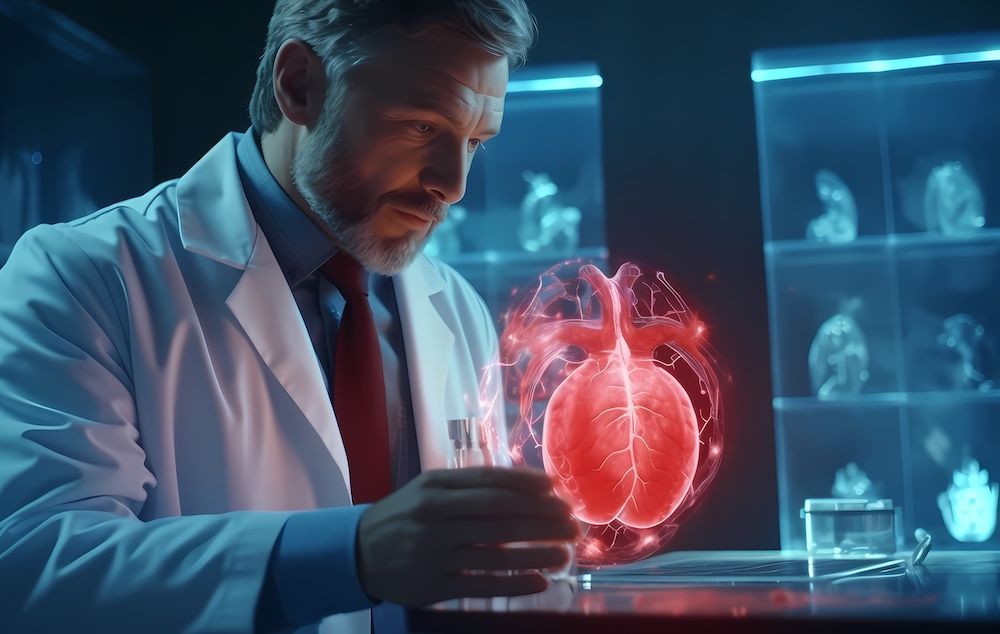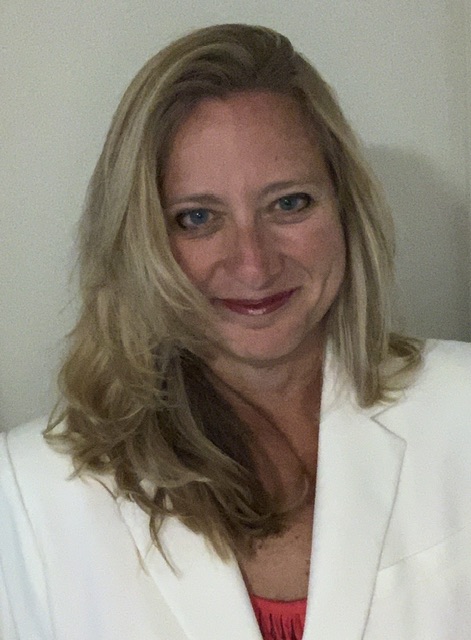Developing the Lifelong Healthcare Simulation Professional with The 60 Year Curriculum
The paradigm shift known as the 60-Year Curriculum continues to reshape the way we work and learn, especially in healthcare simulation. Coined by Dr. Gary Matkin, the “60-Year Curriculum” explores models and strategies for lifelong learning, providing a new perspective oriented toward extended continuing education and centered on six decades of employment. Clinical simulationists are lifelong learners who want to improve the experiential learning opportunities for their participants to improve outcomes. Technological advancement continues to occur at an unprecedented rate that revolutionizes industries and reshapes the job market. In this HealthySimulation.com article, Melissa Jo Tully BSN, MHPE, RN-BC, will explore the significance of lifelong learning in the evolving careers of simulation professionals.
The dynamic nature of technology and work necessitates continuous learning and adaptation to stay relevant and excel. Simulation technologies have evolved and have increased complexity. The simulation center needs professionals who are problem-solvers in audio-visual integration, simulators, and their software, computer networking, healthcare supplies and medical devices, moulage, high-fidelity simulation, and project management, to name a few.
This change in thinking has given rise to the concept of the “60-Year Curriculum,” which encourages professionals to embrace lifelong learning to remain at the forefront of innovation and expertise.
Sponsored Content:
What is the 60-Year Curriculum?
“The 60-Year Curriculum” New Models for Lifelong Learning in the Digital Economy is a must-read for anyone interested in the future of healthcare education, personal growth, and societal advancement. Chris Dede’s vision challenges the status quo and offers a compelling roadmap for individuals to become lifelong learners, adapting to a world where knowledge and skills are in a constant state of change. Dede ignites a powerful call to action that urges people to embrace curiosity. The rapid evolution of the technological landscape is in sharp contrast to the concept of a traditional four-year degree to provide a lifetime of knowledge. Breakthroughs in fields like artificial intelligence and 3D printing have made human simulators more realistic. Scalable adaptive and personalized education and training give new meaning to living in rapid change that requires constant upskilling.
Likewise, the human simulation world is undergoing rapid evolution. As a result, traditional knowledge can quickly become outdated, which emphasizes the need for professionals to continually update their skills and expertise. Many nurses and doctors have graduated, worked, and learned as clinicians and progressed to educators to realize that ongoing development of multiple skills is necessary to stay current. Diverse skill sets include data analytical skills, technical expertise, curiosity, and adaptability, which are some of the competencies required for healthcare simulation professionals.
Healthcare education and clinical simulation have transitioned from the “one and done” thinking to “just-in-time experiential learning” practice. Historically, people followed a “one and done” approach, where they pursued a degree, entered the workforce, and relied on their initial education throughout their careers. However, this approach is no longer practical. In reality, healthcare professionals enter the simulation field through a winding path. Most simulationists started at the basics, which required on-the-job training with the simulators, technology, and expert mentor with minimal formal training.
Sponsored Content:
The 2-, 3-, 4-, and 7-year plans, such degree programs as AS, BS, MS, PhD, MD, DO, years in specialized residencies, board certifications, does not include the formal or informal instruction and the powerful lessons learned from years of experience. The “60-Year Curriculum” advocates for a lifelong learning journey where professionals consistently seek opportunities to enhance their knowledge, skills, and adaptability. Embracing lifelong learning involves a mindset shift, where people view their education as an ongoing process rather than a finite event. The commitment to continuous learning equips professionals with the tools to navigate evolving technologies and industries. Simulation professionals, to stay up to date, need to attend workshops, seminars, and webinars and pursue advanced degrees or certifications to stay abreast of innovative developments. So progress in medical simulation is about passionate curiosity and choosing to learn everyday.
One way to achieve lifelong learning is through autodidacticism; a big word that means one takes responsibility for their education. Curiosity and self-directed learning can lead to amazing discoveries and innovative solutions to problems. So many variables affect how people choose their learning path. Our unique curiosities differ based on the individual’s inner voice, environment, opportunities, and mentors. Employers are now open to hiring autodidacts by recognizing and valuing their adaptability, creativity, and ability to connect ideas from various domains. Their interdisciplinary approach often leads to innovative solutions and advancements in technology, science, and other areas.
An example of an autodidacticism is Florence Nightingale. Florence highlighted how diverse skills can lead to groundbreaking achievements in unexpected ways. Nightingale was an accomplished statistician and theologian who used innovation to create the beginnings of nursing science based on caring, assessment, decision-making, and disease prevention and control.
Unique Pathways to Learning Success
This author’s identity narrative defied conventional norms that involved weaving through diverse disciplines and embraced the possibilities opened up by the advent of the internet and online education. The protagonist of this tale embarked on their academic journey in the late 1980’s, an era when exploring diverse fields was less common. Armed with curiosity in multiple disciplines, including engineering, leadership, nursing, and technological science, these professionals dabbled in administration, art, and policy without hesitation to switch majors as their interests evolved. While some, including frustrated parents, may have seen this frequent change as indecisiveness, this individual saw the reflection as a treasure trove of experiences that enriched their knowledge base. The traditional university curriculums often left our protagonist feeling both bewildered and captivated. The diverse programs kept them engaged, but the academic path remained perplexing. Through such confusion many discovered the power of self-directed learning.
Embracing autodidacticism, many in healthcare simulation in the past decades turned to the internet-based research journals and databases, to find answers to their healthcare simulation questions. Then with the advent of search engines, notably Google, a world of information unfolded at their fingertips, especially thanks to websites like HealthySimulation.com. This newfound self-guided approach allowed these professionals to pursue knowledge according to their curiosity and passions, with ongoing daily updates shared from the global community.
Educators who took risks were rewarded with the opportunity to accelerate their healthcare simulation professional development and long-term career opportunities. Massive online courses and online degrees from accredited universities emerged, which opened the doors to a world of knowledge workers. Clinical simulation champions, always early adopters of technology, seized this opportunity to expand their horizons further.
Embracing the 60-year curriculum, such clinical educators became part of a global community of individuals driven by their insatiable curiosity and passion for learning. Graduating from college three times (a bachelor’s degree and 2 Master’s degrees) was not just an academic accomplishment but a personal triumph over self-doubt and societal expectations. Armed with multidisciplinary insights, these early simulation educator’s found themselves uniquely equipped to tackle complex problems from a holistic perspective. The story of this simulation educator’s career journey is a testament to the power of curiosity, resilience, and embracing diverse interests. Their willingness to forge their path led them to a fulfilling career in healthcare simulation.
View the HealthySimulation.com LEARN CE/CME Platform Webinar Professional Development for Healthcare Simulation Operations Specialists to learn more!
Recontextualizing Learning for Longer Time Frames Provides Multiple Benefits
Lifelong learning is not just for autodidacts and polymaths but improves work and life for the professional in the following ways.
- Employability: Lifelong learners are highly sought after by employers. Their ability to stay current with industry trends and acquire new skills makes them more adaptable and valuable in a rapidly changing job market.
- Leading Innovation: Lifelong learners are at the forefront of innovation, emerging technologies and methodologies. These professionals contribute to advancements in their respective fields.
- Versatility: Embracing lifelong learning allows people to diversify their skillset, making them more versatile professionals capable of handling a broader range of projects and challenges.
- Intrapersonal and Interpersonal Growth: Continuous learning contributes to making meaningful discoveries, and receiving insight fosters personal and professional growth. One gains confidence in their abilities and becomes more open to current ideas and collaborations.
- Solving Global Challenges: Many global challenges, such as pandemics and poverty, require innovative solutions. Lifelong learners are better equipped to tackle these complex problems with a deep understanding of bleeding-edge technologies and approaches.
- Knowledge Sharing: Lifelong learners often become mentors and educators, passing on their expertise to the next generation of professionals, creating a cycle of learning and growth.
View the HealthySimulation.com LEARN CE/CME Platform Webinar Introducing INACSL’s New Simulation Standard: Professional Development to learn more!
While the 60-Year Curriculum offers numerous advantages, the theory also does present challenges. People may face time constraints, financial limitations, or resistance to change. To overcome these challenges, companies and institutions can implement flexible learning programs, encourage employees to take advantage of professional development opportunities, and foster a culture that values lifelong learning. In the ever-changing work landscape, embracing lifelong learning is no longer an option but a necessity. We, as clinical educators, should empower people to stay relevant, innovative, and adaptable throughout their careers. Through commitment to continuous learning, educators can advance clinical education and the healthcare simulation community to shape a brighter and more sustainable future for medicine and patient care.
In an age where the boundaries between disciplines blur, embracing lifelong learning has become more critical than ever. As healthcare simulation professions celebrate this journey through various learning paths, life paths, and curiosities, let these lessons serve as an inspiration for the next generation of seekers who dare to embrace their passions, regardless of how diverse they may be. The future belongs to those unafraid to venture into the unknown and seek knowledge beyond the confines of specialization.
Learn More About Professional Development!
Melissa Jo Tully, BSN, MHPE, RN-BC, is a highly accomplished healthcare professional passionate about education and patient safety. With a Master’s degree in Health Professional Education from the College of Medicine at Vanderbilt University, Melissa has honed her expertise in developing innovative programs to enhance healthcare performance and quality. As an experienced nurse, Melissa followed her passion for lifelong learning by exploring nursing specialties through her early nursing career as a float nurse, including working in critical care, emergency room, labor and delivery, and hospice. Melissa brings a wealth of knowledge and experience to her role. Since 2009, she has been dedicated to simulation-based education programs, both brick-and-mortar and virtual. Driven by a deep-rooted desire to enhance patient safety and quality of care, Melissa continuously seeks opportunities to push the boundaries of simulation-based education. Through her expertise and leadership, she inspires and empowers healthcare professionals to strive for continuous improvement and positively impact patients’ lives. Melissa Tully is a trailblazer in healthcare simulation education, and her dedication to advancing the field is evident in her contributions and achievements.
Sponsored Content:


















